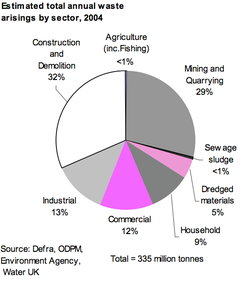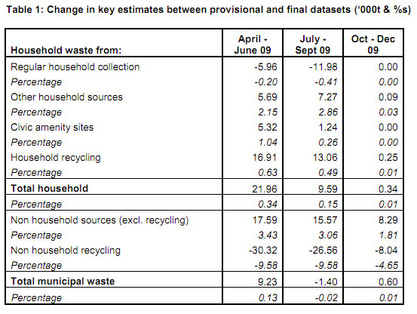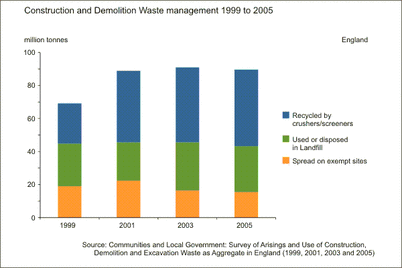- The volume of waste produced in an hour in the UK could fill Albert Hall
- The construction industry has the greatest number of companies spending the least amount of money on effective waste disposal in comparison to other industries. To read more see Material Lifecycle.
- If one ton is weighs about the same as an average young elephant; every ton of steel packaging Recycled makes the following environmental savings:
1.5 tonnes of iron ore
0.5 tonnes of coal
40% of the water required in production
75% of the energy needed to make steel from virgin material
1.28 tonnes of solid waste Reduction of air emissions by 86%
Reduction of water pollution by 76%
- The amount of waste produced by a building site for a medium sized building in one week would fill a container that is 1000 cubic metres.
- The construction, demolition and excavation sector produces more waste than any other sector in England. It also produces the most hazardous waste, around 1.7 million tonnes
- Between 2001 and 2005 the proportion of construction and demolition waste recycled by crushers and screeners has increased from 49 per cent to 52 per cent however, the proportion of construction and demolition waste sent to landfill has increased from 26 per cent to 31 per cent and the amount of waste going to exempt sites has fell from around 25 per cent to 17 per cent.
For more information on strategies
click here- In 2009 - 10 nearly 947,000 incidents of fly-tipping were dealt with by local authorities in England, an 18.6% decrease on 2008 - 2009.
- 63% of fly-tipping included household waste and 31% involved construction waste.
- The average fine for fly-tipping is £5,022.
- The amount of tax for landfill are as follows: - Active waste: £48/tonne (+VAT) - Inactive waste: £2.50/tonne (+VAT)






